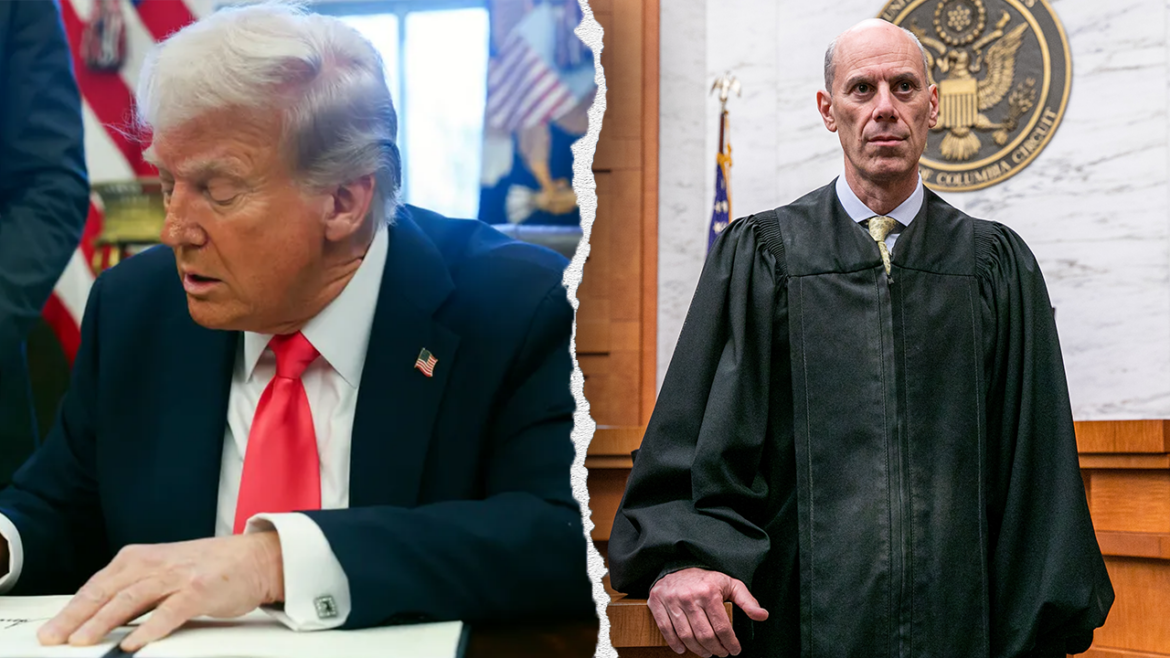Judicial Double Standards? Outrage Grows Over Judge Boasberg’s Contradictory Rulings
A growing chorus of voices is calling for accountability in the federal judiciary, as critics point to what they see as a disturbing double standard in the administration of justice—one that offers leniency and expansive protections to illegal immigrants and foreign criminals, while subjecting American citizens, particularly Trump supporters, to harsh, politicized treatment.
At the center of this controversy is U.S. District Judge James Boasberg, a longtime D.C. jurist now facing intense scrutiny over his decisions in two radically different contexts: the January 6 prosecutions and recent immigration-related cases involving violent gang members.
Judge Boasberg: Two Systems of Justice?
Judge Boasberg recently ruled that suspected illegal immigrants, including alleged members of the violent Tren de Aragua gang, could not be deported under the Alien Enemies Act, arguing it violated their constitutional right to due process. The move sparked immediate backlash from critics who accuse the judge of showing more concern for foreign nationals who entered the U.S. illegally than for American citizens prosecuted in connection to the January 6 Capitol protest.
One D.C. panel judge reportedly remarked that “the U.S. treated Nazis better” than some of the migrants now detained in El Salvador—an inflammatory comparison that drew further criticism for its historical inaccuracy and partisan undertones.
But for many Americans, particularly those who have followed the fates of January 6 defendants, the outrage centers not just on this latest ruling—but on a long pattern of judicial behavior.
The J6 Record: Denied Bail, Denied Rights
Judge Boasberg presided over more than 70 January 6 cases, and critics argue that his courtroom was anything but impartial. He permitted pretrial solitary confinement, allowed questionable evidence to be submitted—such as religious items seized during raids—and upheld the use of Section 1512(c)(2) (a corporate fraud statute) to charge protestors with obstruction of Congress. That specific charge has since been ruled unconstitutional by the U.S. Supreme Court in the J6 context.
Perhaps most controversially, Boasberg sentenced NYPD veteran and 9/11 first responder Sara Carpenter to years in prison for a nonviolent protest—while handing no jail time to Ray Epps, a figure many view as suspiciously under-prosecuted. In a statement at Epps’s sentencing, Boasberg sympathized with the defendant, saying, “You were hounded out of your town.”
Critics ask: Where was that same compassion for Carpenter, or the hundreds of other peaceful J6 attendees who were thrown into the “D.C. Gulag”?
Political Persecution or Blind Justice?
Boasberg is not alone. A growing list of D.C. judges have come under fire for embracing a hyper-politicized interpretation of due process, offering leniency or constitutional protections when it fits a particular narrative—often one that aligns with the political left.
At the same time, they are accused of rubber-stamping draconian punishments for Trump supporters, denying bail, labeling defendants “domestic terrorists,” and enabling Biden-era federal agencies to push the boundaries of lawful prosecution.
This dual-track legal system—one for political insiders and favored groups, another for dissenters—is increasingly viewed as a threat to the rule of law.
Calls for Accountability
Anger is now turning into action, as many are urging Congress to investigate judges like Boasberg for potential ethics violations, abuse of power, and political bias. Some have even proposed forming a special congressional committee to review the behavior of federal judges accused of upholding a two-tiered system of justice.
“If you support President Trump, you’re a terrorist before trial,” one commentator noted. “But if you cross the border illegally, Boasberg and his colleagues fight for you in court.”
The outcry is also fueling renewed calls for judicial reform—including term limits, transparency requirements, and disciplinary oversight for lifetime-appointed federal judges who step beyond constitutional bounds.
A Nation at a Crossroads
This debate is about more than one judge. It’s about whether the judiciary remains a neutral arbiter of law, or whether it has become a political tool wielded by ideologically motivated actors within the federal bureaucracy.
In a time when Americans are increasingly disillusioned with federal institutions, the question remains: Will Congress, or the Department of Justice, step in to investigate these alleged abuses? Or will activist judges continue to operate without accountability?
One thing is certain—millions of Americans are watching, and the calls for justice are growing louder.

